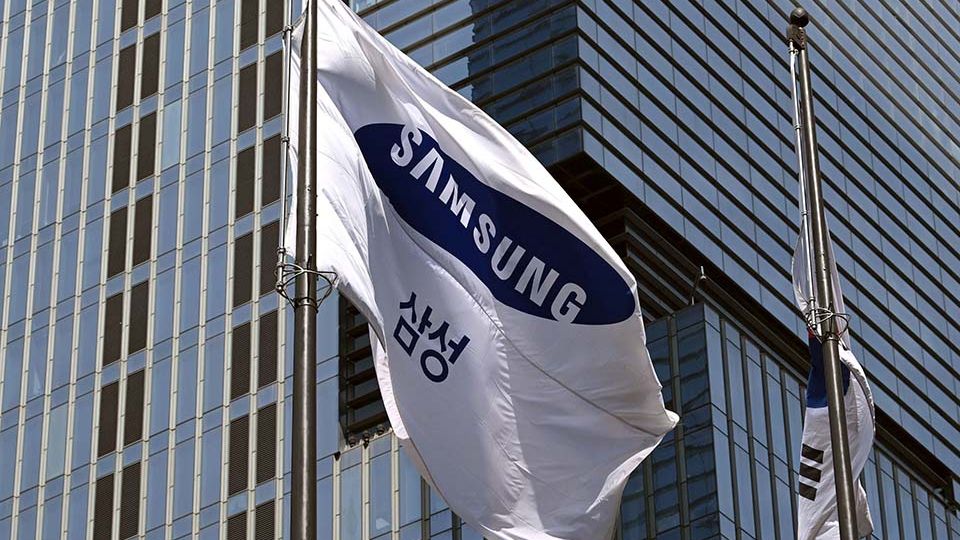May 16, 2025
SEOUL – Samsung Electronics is drawing renewed attention over the possibility of further mergers and acquisitions in its core high-tech sectors, following its recent purchase of a European heating and cooling systems firm.
Questions remain over whether the company has the liquidity to pursue large-scale deals, as a significant portion of its cash reserves remains tied up in overseas subsidiaries.
The tech giant announced Wednesday its $1.7 billion acquisition of Flakt Group, a leading European HVAC (heating, ventilation and air conditioning) firm, marking the company’s most active large-scale M&A drive in about eight years. The deal comes shortly after Samsung subsidiary Harman’s purchase of the audio division of US-based Masimo earlier in May.
The surprise deal was welcomed as a strategic move tied to the growing demand for data center infrastructure, but it also drew disappointment from some who expected bolder action in Samsung’s core technology areas.
“While the HVAC deal is linked to the data center business, it still raises questions about whether resources are being directed to the right areas,” said Hwang In-tae, a business professor at Chung-Ang University. “It’s concerning that Samsung appears to be drifting away from its core businesses, where the real challenges lie.”
Hwang Yong-sik, a professor at Sejong University College of Business and Economics, echoed the sentiment. He noted that amid concerns over Samsung’s weakening grip on key sectors like AI and semiconductors, the market is now watching closely to see whether the company will follow through on its pledge outlined in its letter to shareholders.
“We will pursue new opportunities in areas such as robotics, medical technology and next-generation semiconductors to establish future growth engines in the emerging era driven by the AI industry,” Samsung said in a letter to shareholders outlining its 2025 strategy.
Samsung’s recent deals have been relatively small in scale. Among them is its investment in the Korean robotics company Rainbow Robotics. In 2023, Samsung invested 86.8 billion won in the company to acquire a 14.7 percent stake. It later raised its ownership to 35 percent through a call option, bringing the firm under its consolidated financial reporting.
In 2019, Samsung acquired Israel-based camera technology firm Corephotonics for $155 million. In 2024, the company also purchased Sonio, a French startup specializing in medical ultrasound systems, for $92.7 million.
Analysts view Samsung as well-positioned for further M&A, with 105.1 trillion won in cash and cash equivalents as of the first quarter. However, most of the funds are tied up in overseas subsidiaries, making it difficult for the company to mobilize capital for large-scale deals.
“We want to bring our overseas cash reserves to Korea, but local authorities keep a close eye on it,” a Samsung official said under the condition of anonymity.
A significant portion of Samsung’s cash is held in countries like Vietnam, where foreign exchange controls and local operational constraints make repatriating funds a complex process. These limitations have become a key factor in the company’s ability to execute large-scale acquisitions.
At its Korean headquarters, Samsung held 11.8 trillion won in cash and cash equivalents as of the end of 2024.
While Samsung has pointed to challenges in accessing overseas cash reserves, some argue that the company’s exceptionally low debt ratio suggests it has ample room to borrow and that the company should be able to secure funding for large-scale deals if needed.
“Samsung’s debt ratio is extremely low. The ideal ratio is not absolute, but 100 percent is a general benchmark. When entering a new business, it’s not unusual for firms to raise capital, and given the company’s balance sheet, it certainly has room to do so,” Hwang of Chung-Ang University said.
As of December 2024, Samsung’s debt ratio — calculated as total liabilities divided by total equity — stood at 27.9 percent.
“A single M&A deal may not bring an immediate turnaround, but a good M&A deal could serve as a strategic lever to strengthen its core capabilities,” Hwang of Sejong University said.


